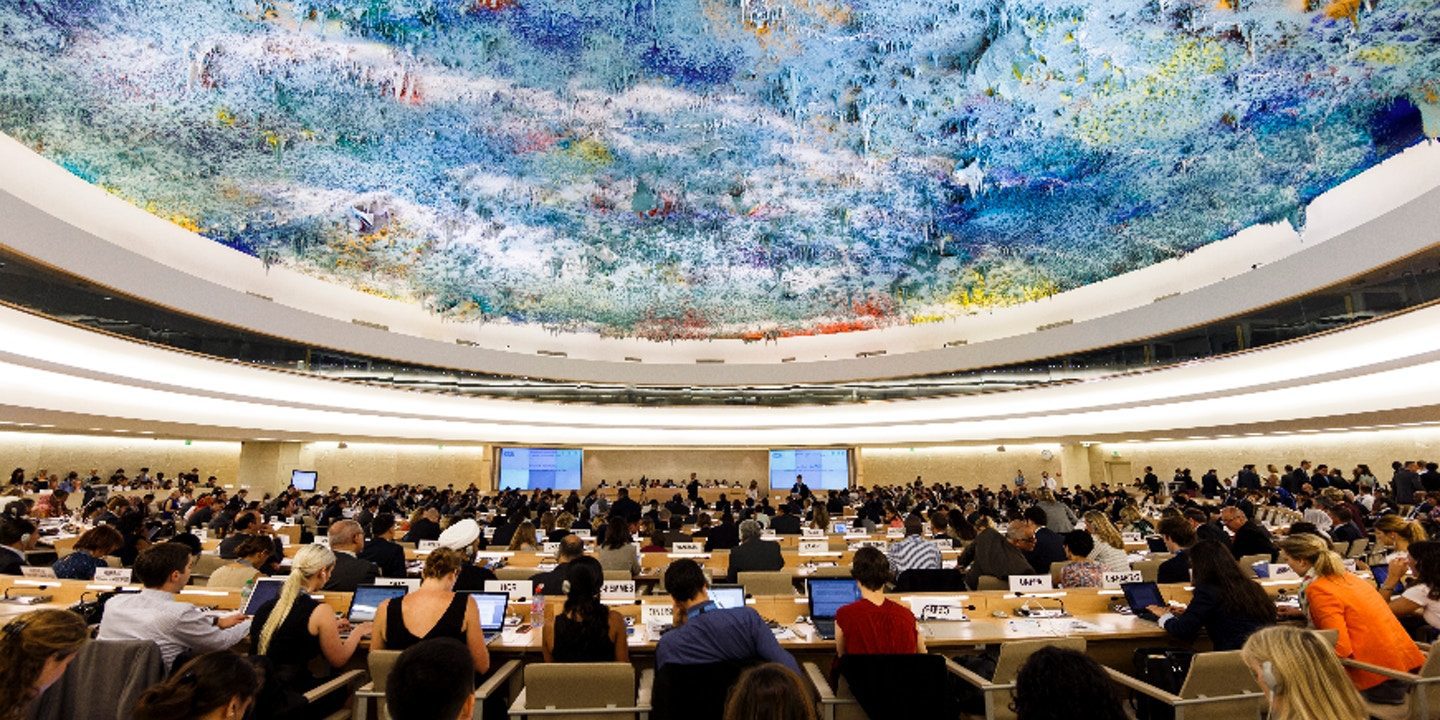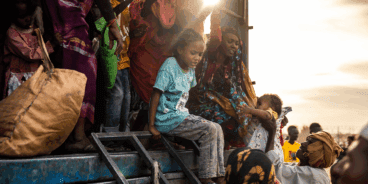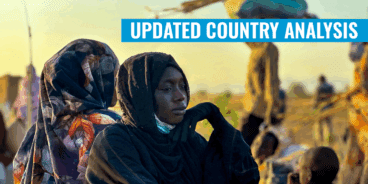

UN Human Rights Council Member States’ abject failure to renew Yemen investigation is a wake-up call
Civil society organizations condemn and express their profound disappointment at the United Nations Human Rights Council’s (the Council) decision to discontinue the mandate of the Group of Eminent Experts on Yemen (GEE), the only international and impartial body investigating serious violations and abuses of international human rights law and international humanitarian law perpetrated by all parties to the armed conflict in the country. Ending the GEE’s mandate will only entrench impunity, and act as a greenlight for all parties to the armed conflict to continue to commit war crimes and other serious violations.
The Council’s decision not to renew the GEE’s mandate represents a historic failure by the international community to uphold international law and to provide the necessary tools to protect the civilian population in Yemen at a time when the country is facing the largest humanitarian catastrophe in the world. A catastrophe that, according to the UN, is a direct result of the types of violations and abuses of international human rights law and humanitarian law that the GEE was set up to investigate.
In the face of the Council’s callous dereliction of duty, it is incumbent on those UN Member States who share our concern for the welfare of people in Yemen and our conviction that international law must be upheld to redouble their efforts, with a view to ensuring:
(1) the establishment of an international investigative body similar to the GEE; and
(2) the implementation of the GEE’s recommendations geared at making progress towards ensuring accountability for crimes under international law committed in Yemen.
Only by renewing and strengthening efforts in this regard will Member States be able to undo the harm done and safeguard international justice, accountability, and the rule of law.
In light of the above, we renew the call of over 60 civil society organizations to strengthen accountability for Yemen notably through the establishment of a criminally focused investigation body to:
- Collect and preserve evidence, prepare case files and facilitate fair and independent criminal proceedings, in accordance with international law standards; and
- Lay the groundwork for effective redress, including reparations for victims
The latest and now last report submitted to the Council by the GEE, entitled “A nation abandoned: A call to end Yemen’s suffering,” once again exposed the brutal attacks carried out against civilians throughout the country by both the Saudi/UAE-led coalition and the Ansar Allah (Houthi) armed group. It also provided a prophetic warning: a lack of political will among the parties to the armed conflict and the international community to ensure effective accountability for violations of international law remains a primary obstacle to ending civilian harm and broader human suffering within the country. Concerted efforts must be made to overcome this impasse and ensure real accountability for the suffering being inflicted on the Yemeni people.
The ongoing armed conflict has ravaged the country and its population. At least 233,000 people have lost their lives, including 102,000 as a direct result of hostilities and 131,000 from indirect causes, such as conflict-related food scarcity, and destruction of health services and infrastructure, to name but a few.
Attacks on homes, schools, hospitals, civilian infrastructure, and humanitarian aid convoys have put Yemen on the path towards one of the largest famines in the country’s modern history. Today, over 400,000 Yemeni children are at risk of dying of starvation and malnutrition, and 16.2 million people face acute food insecurity. This is no accident: there is compelling evidence that the parties to the armed conflict are deliberately starving Yemenis as a method of warfare.
We are deeply appalled that as many as 21 of the 47 Members of the Council voted against the renewal of the GEE’s mandate and eight States abstained or did not cast a vote for the renewal of the GEE despite the immense human suffering and unremitting brutality inflicted on the Yemeni people by all parties to the armed conflict.
Member States of the Council who changed their votes from an abstention in previous years to a no: Bangladesh, Indonesia, Senegal and Togo.
New Members of the Council and existing Member States who voted no: Bahrain, Bolivia, Burkina Faso, China, Cuba, Eritrea, Gabon, India, Libya, Mauritania, Pakistan, Philippines, Russian Federation, Somalia, Sudan, Uzbekistan and Venezuela.
Member States who abstained or did not cast a vote: Armenia, Cameroon, Côte d’Ivoire, Japan, Malawi, Namibia, Nepal and Ukraine.
In the build up to this vote Saudi Arabia and Member States of the Arab Group and the Organization of Islamic Cooperation conducted a tireless lobby campaign against the resolution renewing the GEE’s mandate. Saudi Arabia, the United Arab Emirates and other allies have repeatedly been accused of violations of international human rights law and international humanitarian law in Yemen, including by the GEE. We consider this campaign a blatant attempt to ensure impunity for the crimes they have reportedly committed and to do away with the possibility of meaningful accountability, justice and redress for the victims and survivors in Yemen. States who voted against or abstained on the resolution to renew the GEE’s mandate effectively decided to support Saudi Arabia and its allies instead of protecting people in Yemen and upholding international law and justice. Rarely does such political manoeuvring violate so thoroughly basic notions of human dignity and the duty of Members of the Council to uphold the highest standards in the promotion and protection of human rights.
This outcome was not inevitable. Rather, it reflects a persistent lack of leadership and political will by UN Member States that claim to uphold the highest standards of human rights to hold highly repressive States accountable at the Human Rights Council. This failure should be a wake-up call and turning point for States who aspire to a principled approach at the UN to begin to adopt a more courageous, country-specific, and victim-oriented approach to initiatives, an approach that values protection of real people in real places over consensus, and international human rights law over compromise.
We call on UN Member States to:
- Revise the practice of non-competitive elections to the UN Human Rights Council, notably by ensuring that regional groups stop presenting closed slates
- Take measures to ensure that members of the Human Rights Council are held to their commitments to uphold the highest standards of human rights, including by not engaging in a practice or pattern of intimidation, attacks, or reprisals against human rights defenders
The people of Yemen and victims of human rights violations around the world deserve no less.
Signatories:
- Amnesty International
- Al-Amal Foundation for Women and Development
- Alkarama for Human Rights
- Asian Forum for Human Rights and Development (FORUM-ASIA)
- Bridges for Yemen
- Cairo Institute for Human Rights Studies (CIHRS)
- Ceasefire Centre for Civilian Rights
- Civil Collation for Peace and National Reconciliation
- Dameer Foundation for Human Rights
- Daoo Foundation for Rights & Development
- Democracy School
- Ethra foundation
- Global Centre for the Responsibility to Protect
- Gulf Centre for Human Rights (GCHR)
- Heran Foundation for Local Development
- Human Rights Watch
- International Commission of Jurists (ICJ)
- International Federation for Human Rights (FIDH)
- International Service for Human Rights (ISHR)
- “My Rights” – Foundation for Women’s Political Empowerment
- Mwatana for Human Rights (Mwatana)
- Nidaa Foundation for Development
- Partners Foundation
- Salam for Yemen
- Sam for Rights and Liberties
- Sisters’ Arab Forum for Human Rights (SAF)
- Tamdeen Youth Foundation
- The Women’s Committee for Reconciliation and Peace
- Watch for Human Rights
- Wogood for Human Security
- Women and Child Development Center / Taiz Governorate
- Yemen Center for Human Rights Studies
- Yemen Organization on Women’s Policies
- Yemeni Archive
Related Content


Atrocity Alert No. 459: Sudan, Ukraine and Conflict-Related Food Insecurity
